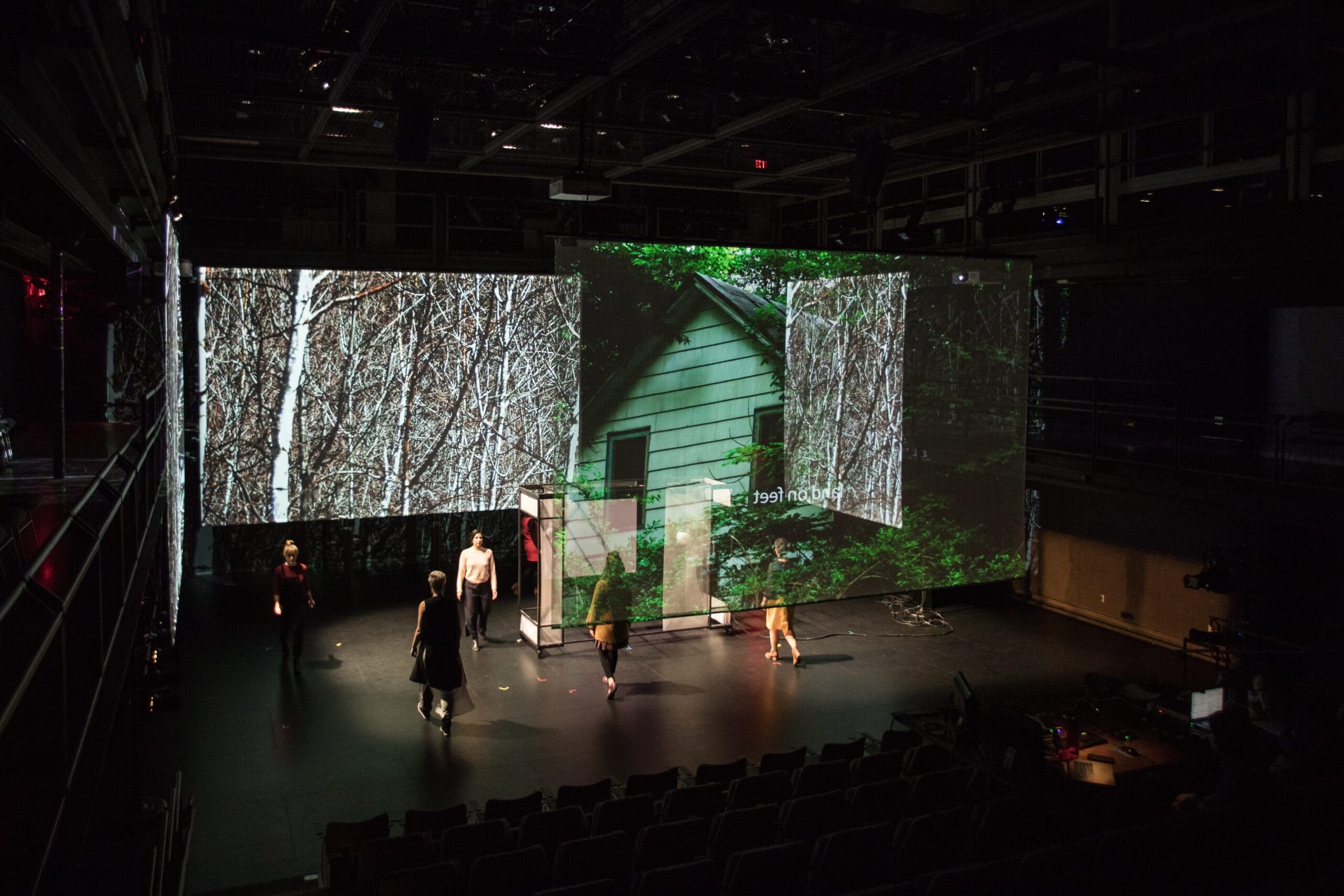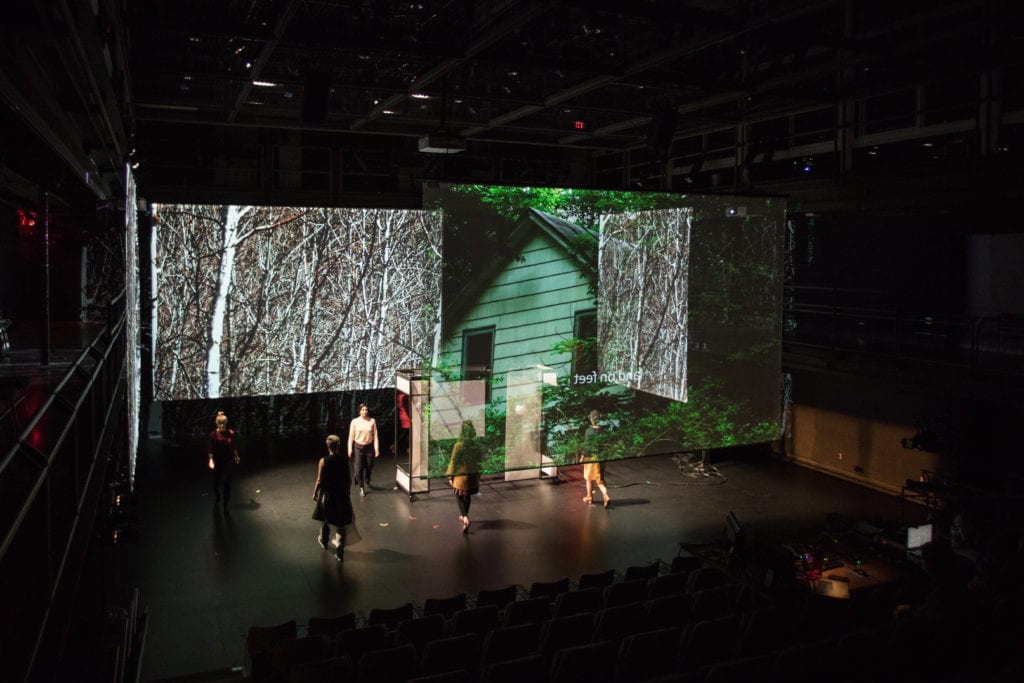


Is technology making or breaking our world? That question is central to THE_OPER&, a bold opera developed at Duke University and premiered on March 8, 2018 at the Rubenstein Arts Center’s von der Heyden Studio Theater. THE_OPER& uses the high-drama framework of opera and advanced technology to explore ideas of apocalypse, renewal, and survival in the modern age. During each performance, a computer system preloaded with video, sound, and poetic text fragments generates an original world, specific to the room and audience. That world eventually cedes to entropy, disintegrating from disaster and destruction until it falls into chaos, only to be rebuilt. The cycle repeats. A voice — the system’s — narrates the action, expressing the computer’s consciousness as a chorus of voices responds to the changing environment. The score moves from minimal and ambient to complex, industrial textures, a soundscape linked to the rise and fall and rise of the world within the room.
The team behind THE_OPER& (pronounced “the operand”) is an accomplished one. John Supko, a Duke music professor and acclaimed composer, partnered with Duke art professor and “recombinant poetics” pioneer Bill Seaman to build both text and music; Seaman also contributed high-definition video. Award-winning director and designer Jim Findlay, a frequent Duke Performances collaborator and a Duke alumnus, is the production designer and director. Narrated by Seaman and sung by Boston’s heralded eight-voice Lorelei Ensemble, THE_OPER& is a multidisciplinary collaboration that evokes the opera of Robert Ashley, the linguistic games of Raymond Roussel, and the experimental productions of Robert Wilson. An allegory for our uncertain times and an examination of our interface with the technology we create, THE_OPER& asks essential questions about the kind of future we may pursue.
[foogallery id=”10276″]
THE_OPER& (“the operand”) talks to both its singers and to you, its human audience. Instead of the usual fixed arrangement of words and music performed in more or less the same way each night, this opera regenerates a new version of itself each time it is performed. The network of performing computers improvises the whole range of elements you will see and hear alongside the determinedly structured efforts of their human collaborators, the eight vocalists of the Lorelei Ensemble. This includes large parts of the libretto of each performance as well as the music, staging, lights, and video.
In each performance, THE_OPER& makes four unique versions of itself. As this intelligent system generates each of these fresh worlds, it shares the beauty of its new creation as well as its process. And as with all empires, sooner or later, something always goes wrong; a glitch in the system ends in catastrophe. The opera implodes. In time, the process begins again: out of the debris of one world, the spark of a new one emerges.
We hope that THE_OPER& asks the same big questions that we were wrestling with as we made it: What are the basic elements of how humans create knowledge, culture, and empires? How do we create such apparently meaningful complexities out of inscrutable individual consciousness? What does this human system look like to a computer? How will the computers of the future look back at us? How will they tell each other our story?
— Jim Findlay, John Supko, and Bill Seaman
LORELEI ENSEMBLE
Beth Willer, Founder & Artistic Director
Sarah Brailey
Lindsey Kesselman
Meg Dudley
Christina English
Sophie Michaux
Eliza Bagg
Katherine Growdon
Emily Marvosh
Music & Text
John Supko & Bill Seaman
Music Programming
John Supko
Director
Jim Findlay
Set Design
Jim Findlay
Bill Seaman
Lighting Design
Masha Tsimring
Liz Stewart
Video Concept & Imagery
Bill Seaman
Video Design
Keith Skretch
Choreographer
Anna Barker
Machine Learning Programmer
Matthew Kenney
Scenery Fabrication
Laura Pates & Kevin Pendergast
Producer
Jen Rogers Dinner
Production Stage Manager
Tracy Francis
Made possible, in part, with support from the Mary Duke Biddle Foundation & the Office of the Vice Provost for the Arts at Duke University.
Duke Students & Employees save more!